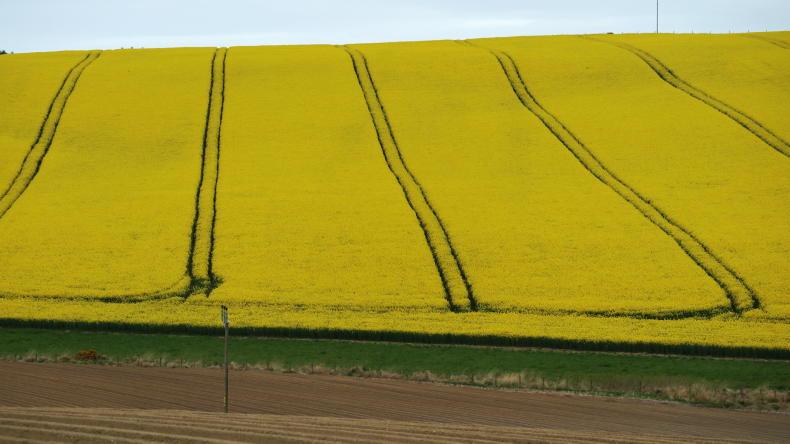I hate to do it but I’m going to do it. I’m going to open with the weather chat.
I haven’t had a conversation with a farmer or breeder this month that hasn’t had the arduous spring weather at its core.
A helpful Facebook post ‘memory’ popped up on my page, a splendid photo of my mares happily grazing on a thick sward of meadow grass this week a year ago – not so this year. Thankfully, there seems to be an upturn in temperature and growth seems to have upped its pace a bit, which should lift the hearts of farmers and horses alike, including mine.
Significant move
Another problem causing concern within the equine industry is rapeseed, which I reported on in The Irish Field last week. Rapeseed is used in cattle feed, cleaning products, cooking oils and bio diesel and has grown rapidly in popularity over recent years. The area of oil seed rape grown in Ireland in 2021/2022 has increased by 44% and the problem is on the rise.
According to Irish Farmers Journal tillage editor Siobhán Walsh this week, there has been “a significant move by tillage farmers away from cereals into beans and oilseed rape, attracted by higher prices”.
It’s safe to say there are increasing numbers of racehorse trainers expressing anxiety by the threat of rapeseed to their horses. There have been a number of trainers displaced this spring trying to escape the negative effect of rapeseed on their horses’ form. It’s not just racehorses affected either, all types of horses including Ireland’s many pleasure horses can be hindered by rapeseed.
Struggle to exhale
Unfortunately, rapeseed allergies are more serious for horses than humans, they manifest more like flu in horses as opposed to hay fever symptoms in us humans. A rapeseed reaction in equines can cause horses to breathe faster and struggle to exhale.
In many cases the horse’s lungs will become inflamed, which can make them more susceptible to viral and bacterial infections. Psychological symptoms can include a lack of concentration and possible behavioural problems, none of which equates to a horse being fit for their job.
Vet Joe Collins suggests limiting exposure to the irritant by stabling, nasal masks and using crop rotation, but admits all are tried with varying success.
“Medication can be an option, including cortisone and other products applied to the affected area (via the nose) or systemically,” Collins explains.
“However, drug testing rules for competition horses may be an issue here. More drastic action has sometimes been employed including directly targeting affected facial nerves and as we’ve seen recently, moving away from rapeseed fields.”
The growing problem of rapeseed doesn’t look like an easy one to solve, the Irish Equine Centre has joined forces with the Irish Racehorse Trainers Association to gather the facts of each individual case and to try to find an answer but until then, concern grows at a pace.





SHARING OPTIONS